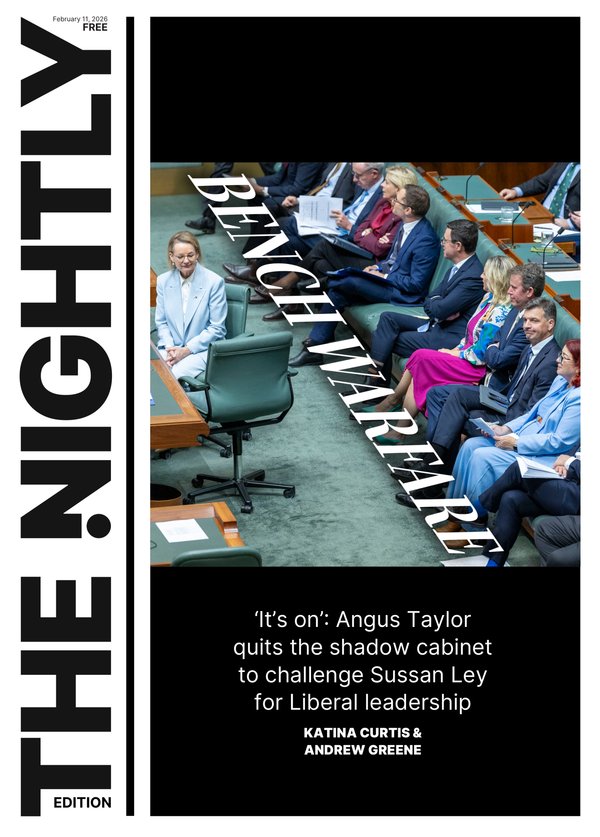AARON PATRICK: Tax cuts and Budget replies — inside the 24 hours that could have broken the Liberal Party
On Tuesday night, Angus Taylor and Peter Dutton had a very limited window to make one of the most important Coalition decisions of the election.
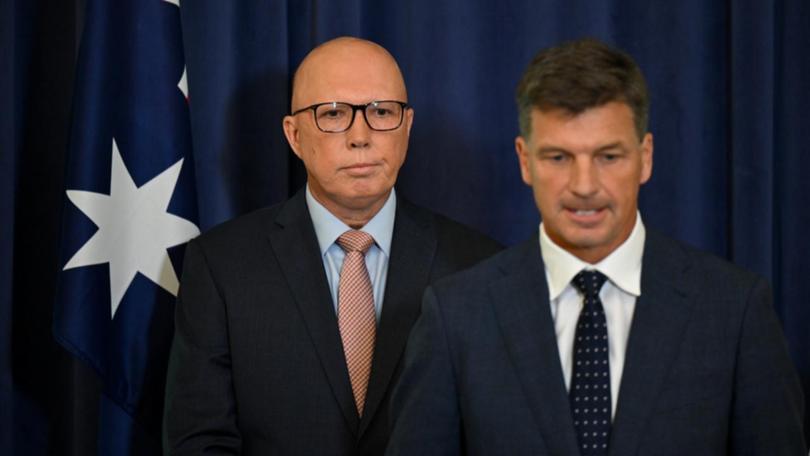
Last Tuesday afternoon Liberal leader Peter Dutton and his Treasury spokesman Angus Taylor realised they faced a difficult choice. That night Labor Treasurer Jim Chalmers would offer, in the Federal Budget, an income-tax cut.
Liberals pride themselves as the party of lower taxes. But at a cost of $17 billion over four years, the two-percentage point reduction in the lowest tax rate was not cheap. Also, a month earlier the Coalition had matched an $8b increase in Medicare subsidies that became one of the Labor Party’s top election policies.
If Mr Dutton and Mr Taylor supported the tax cut, they knew they would be accused of having no significant tax policies of their own. If they opposed it, Prime Minister Anthony Albanese and Dr Chalmers would spend the whole campaign reminding voters.
Sign up to The Nightly's newsletters.
Get the first look at the digital newspaper, curated daily stories and breaking headlines delivered to your inbox.
By continuing you agree to our Terms and Privacy Policy.Mr Taylor was scheduled to appear on the 7.30 current affairs program after Dr Chalmers’ speech. He and other senior Liberals had been working on tax options almost since they lost government in 2022. He knew the first question would be on the tax cut. He and Mr Dutton had six hours to make one of the most important Coalition decisions of the election, perhaps of their whole time in opposition.
Help for drivers
Neither of the two Liberals wanted to copy another Labor policy. As they discussed their options, they honed in on the 50.8¢-a-litre tax on petrol. Halving the tax, known as an excise, one year would cost $6b.
Both men represent outer-suburban electorates, and knew petrol taxes dis-proportionally hurt voters affected most by three years of inflation: working families in the outer suburbs and country areas forced to drive long distances. A family with one car would save around $14 a week if the excised was halved, estimated Mr Taylor, a business economist.
The crossover between the voters they wanted to target and the beneficiaries was not exact. Wealthy people tend to have bigger cars and drive further. But it was close enough to make the politics attractive.
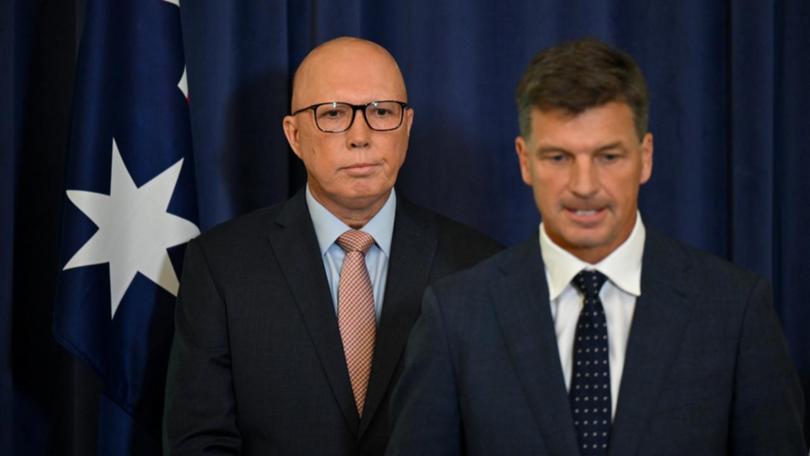
Locked in Parliament House offices under the watch of Treasury officials to protect the secrecy of the Budget documents, the two men decided the cut would be temporary - only one year - to reduce damage to the budget deficit, a Coalition priority. But it would come into effect in July, a year before the first stage of the Government’s tax reduction.
Having settled on their counter proposal, the two Liberals decided the decision needed to be kept secret 24 hours. Mr Dutton’s reply to the Budget was on Thursday evening. If the policy leaked much earlier, interest in his last important speech before the campaign began might evaporate. Only the most senior Liberals were told.
Liberals against tax cuts
On Budget night, the first question 7.30 host Sarah Ferguson asked Mr Taylor was: “Let’s be clear on these tax cuts. Do you or don’t you support them?”
After explaining the Government policy was worth 70¢ a day, Mr Taylor said: “We won’t support what they’re doing here.”
Seeking clarification, Ms Ferguson said: “You do not support the tax cuts?”
“No,” Mr Taylor replied.
Normally, laws enacting budgets are voted in Parliament weeks or months later. This time, to embarrass the Opposition, the Government introduced them the next day.
At 11.37am, 52 Liberal and National MPs, still oblivious to their leaders’ plan, found themselves voting against a $536-a-year tax cut .
The Labor Party was delighted. It looked like the Opposition had fallen into a trap. “I’m looking forward to the Leader of the Opposition explaining to people why he doesn’t support tax cuts for hardworking Australians,” Mr Albanese said in the House of Representatives.
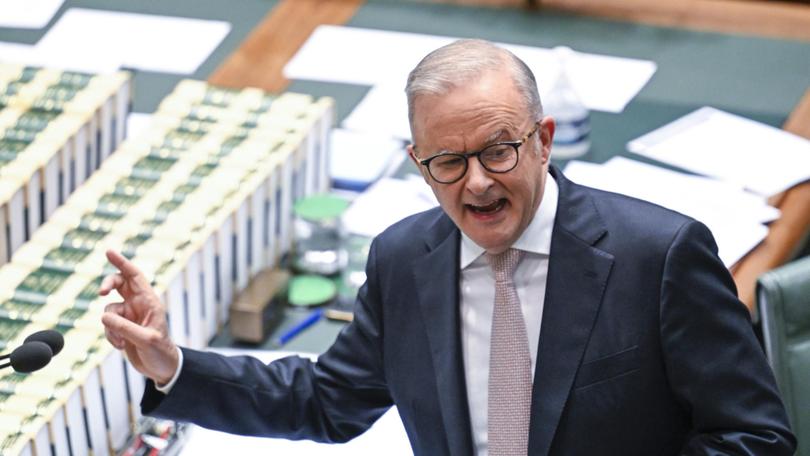
One Liberal MP said the vote felt like living in a “parallel universe”. Even the Greens Party supported the cuts. “That was a leap of faith that I had faith in Peter and Angus that they could use the $17b in the right way,” said another backbencher, referring to the cost of supporting the Government’s tax cut.
No Liberal or National MPs broke ranks.
Internal dissent
There was another reason to keep the backbench in the dark. Over the previous months some Liberals had criticised Mr Taylor for what they said was a failure to capitalise, politically, on inflation that had made most Australians poorer. The shadow treasurer’s office wrote off the criticism as malcontents from the party’s Left wing, but it led to anonymous quotes critical of Mr Taylor appearing in newspapers.
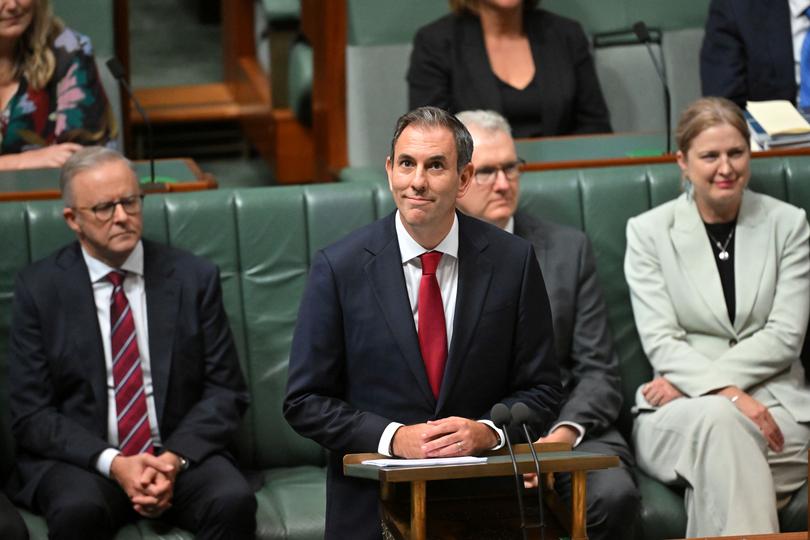
Late that afternoon, not long before their deadlines, Mr Taylor began briefing journalists in Canberra on the petrol plan. The news did not break until around 10.30pm AEDST. A few Liberal backbenchers had been told an hour earlier. Some first read about it in the press, according to Liberal sources.
As many Australians heard about the plan for the time Thursday morning, Coalition candidates noticed a shift in comments on social media. Criticism of the Coalition for opposing tax cuts had switched to praise for the petrol tax cut. Another promise to restrict sales of gas overseas, to make energy cheaper, also seemed popular.
Among those closely following the reaction was Matt Moran, the Liberal candidate in the new seat of Bullwinkel on Perth’s eastern outskirts that covers a large rural area. Polls show the seat is too close to call, suggesting the competing tax policies could determine who wins.
While Mr Moran, an army veteran and former television journalist, said most voters raised concerns about immigration, the reaction to the petrol-tax cut was positive. “It’s a very proactive and pragmatic policy that will help families tradies and small business deal with the cost-of-living crisis,” he said.
Silence in teal seats
But Liberal candidates fighting “teals” in the inner cities did not seem as enthusiastic. Their voters are more likely to driver shorter distances, use public transport, and see natural gas as contributing to global warming.
Liberal candidates are under tight restrictions about what they can say to media outlets, but the views can be inferred from social media posts. Among the Liberals who did not promote the petrol tax-cut on their Facebook pages after the budget was Amelia Hamer in the Melbourne seat of Kooyong, Ro Knox in Sydney’s Wentworth, Jaimee Rogers in Warringah, which is also in Sydney, and Tom White in Perth’s Curtin.
While latest polls show the Coalition narrowly trailing the Labor Party, they suggest the budget’s tax cut did not drive many voters back to the Government. A Resolve poll in the Sydney Morning Herald and The Age put support for the policy at 51 per cent, a modest figure for a broad tax cut.
There was no similar figure for the petrol tax cut, although Liberal Party figures have hinted that internal polling found it more popular.

